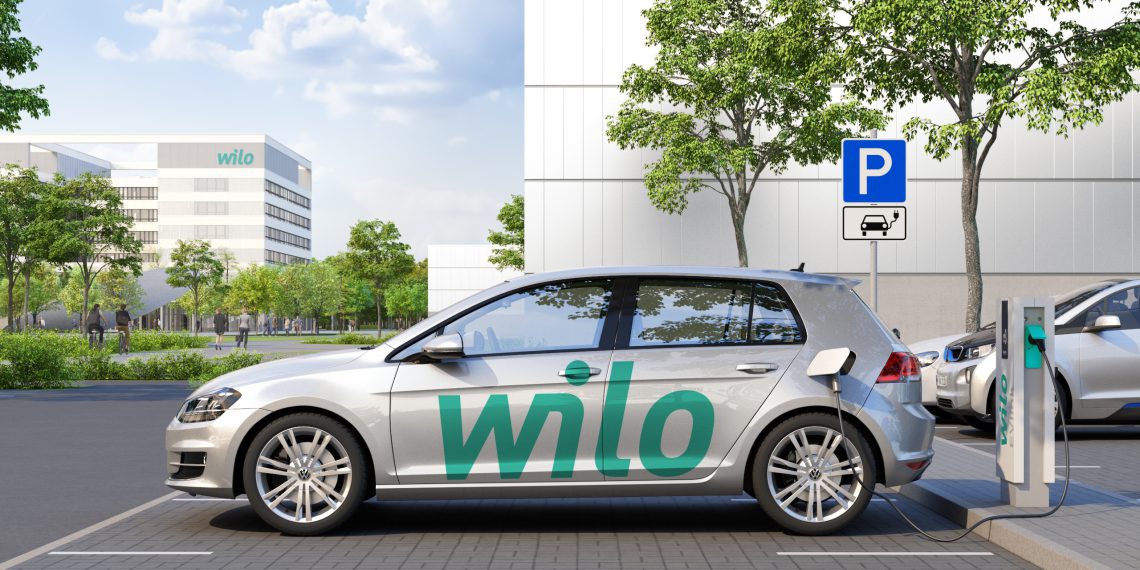Now the Dortmund-based technology specialist is taking the next step towards sustainability. By the end of July, Wilo will have launched its electromobility concept at Wilopark with 108 charging points at a total of 57 e‑charging stations. Green electricity is used for charging at purchase price.
Mobility is being rethought. All experts agree that it must be made more environmentally friendly in the future. With more climate protection and less dependence on fossil fuels, electromobility is an important topic for German industry. And the advantages of electric driving are clear: the drive is emission-free and makes a significant contribution to reducing CO2. At the same time, this requires a change in social thinking — on the part of every individual, as well as municipalities and companies.
In order to reduce the traffic-related burden on people and the environment, the company is providing new impetus with a mobility concept at its Dortmund headquarters. From Friday, July 09, 2021, 20 charging points will initially be available, and from the end of July green electricity can then be obtained from 57 charging points, each with one or two charging points — and this can be done conveniently for employees and visitors, for example via roaming or PayPal.
“We have developed an explicit sustainability strategy based on our corporate strategy in combination with relevant topics. One of our goals here is to reduce our ecological footprint, naturally also at our other sites. Mobility has become indispensable for us. It serves our supply needs and brings people together. With the help of electromobility, we have the opportunity to combine this responsibly toward people and nature in the future.”
- Georg Weber, Chief Technology Officer and Member of the Board of Management
Refueling with green electricity at purchase price
The charging stations are powered exclusively by green electricity, which is charged on at the purchase price. For employees, this price is fixed in 2021 and amounts to 0.24 euros/kWh for the standard AC charging stations. Intelligent load management ensures that the green electricity fed into the grid is used efficiently, thus avoiding expensive peak loads. Sustainability is an integral part of the company’s strategy, and so a fully comprehensive sustainability concept was already taken into account during the planning of the Wilopark.
For example, a large part of the primary energy demand can be covered by the 6,000 square meters of solar panels: about 10% of the total electricity consumption and 70% of the base load in summer are generated by the photovoltaic system. “We attach great importance to climate protection, especially at our own production sites. The park is the largest investment project in our company history and sets new standards in energy efficiency. Here, we are already producing in a climate-neutral manner and, incidentally, also using our own innovative solutions. By 2025, we will have climate-neutral production at all our main production sites worldwide,” explains Weber.

















